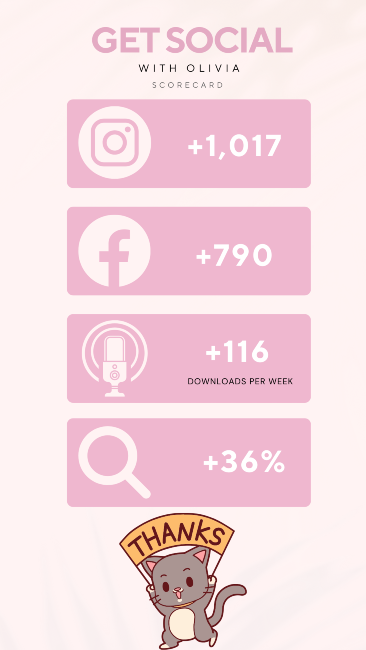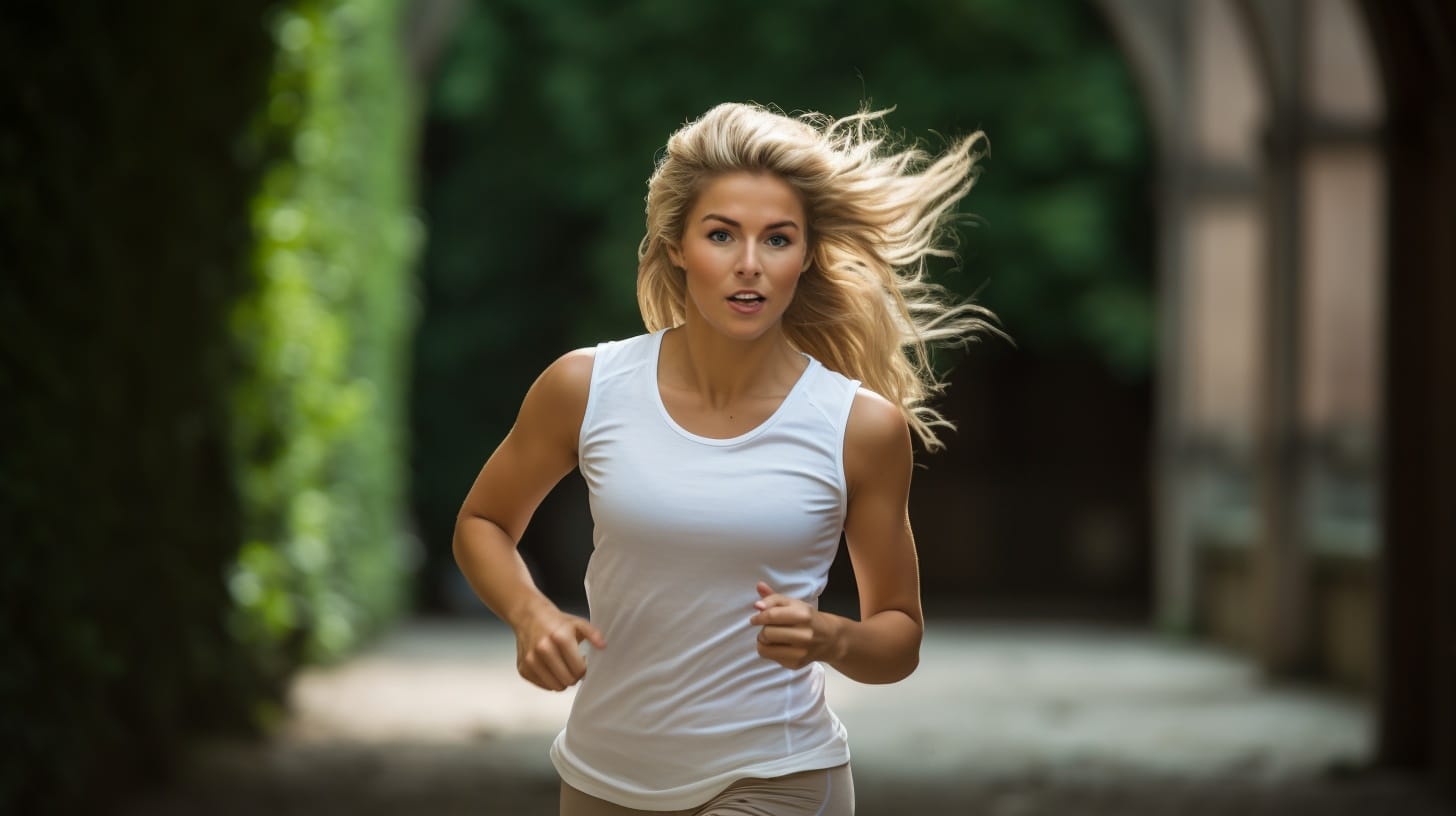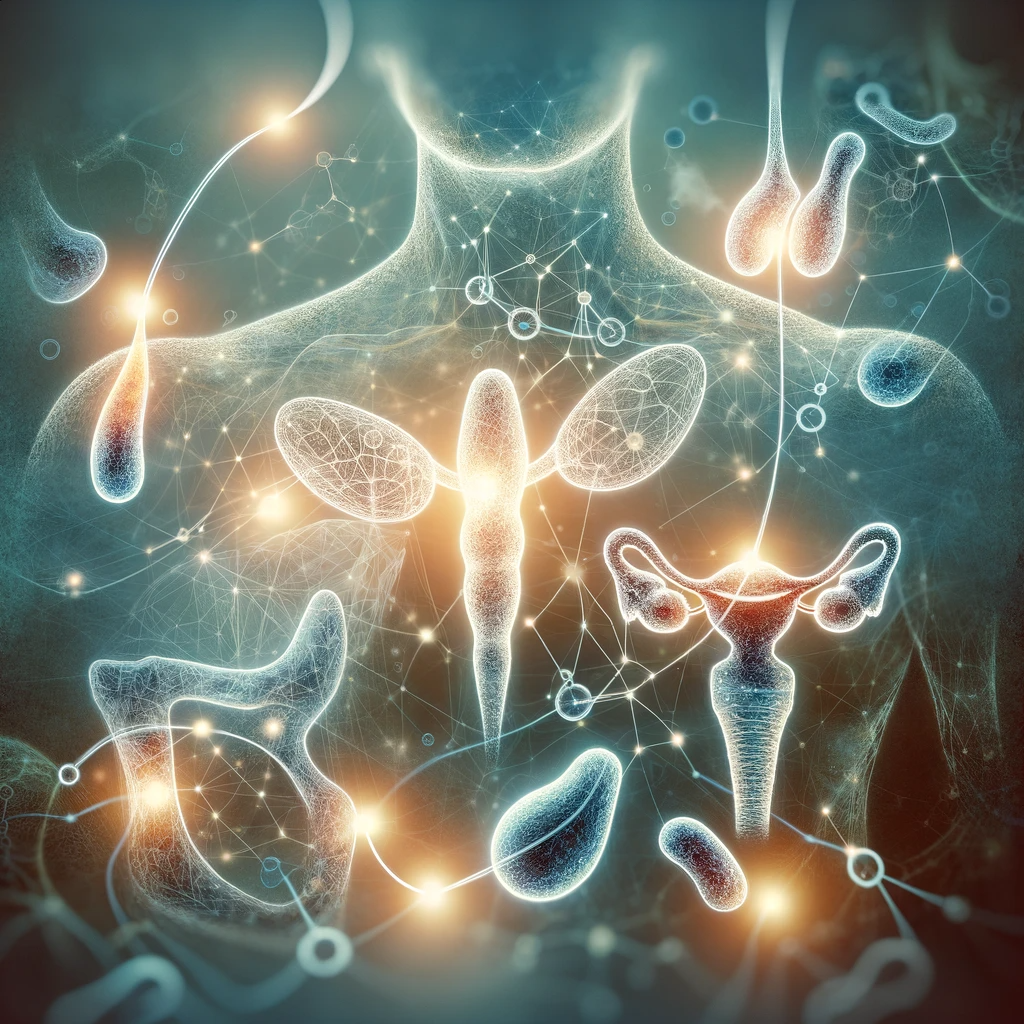Hello ladies! And some gentlemen 😅, I hope you are all working hard on your New Year resolutions; on my end, I feel I was keeping myself in check, but the scale begs to differ...
Before we dig into the article, I want to share my gratitude for the surge of new followers I have been enjoying over the holiday. If I was a Wall Street gal, I would be all over the place right now. SELL SELL SELL 🤑 - Here's the breakdown of the progress and I am very grateful for your response!

And now, let's jump on what has been scratching my head while resting over the holidays.
Are you tired of searching for the perfect skincare routine for your age? Look no further! I am here to help you during your transition during menopause stages.
As we age, our skin goes through many changes, including a decrease in collagen production, reduced elasticity, and a decrease in oil production. These changes can lead to fine lines, wrinkles, and dull, dry skin. However, with the right skincare routine, you can combat these changes and achieve healthy, glowing skin at every stage of your life.
I will cover the best skin care practices for each age group, including tips for cleansing, moisturizing, and protecting your skin from the sun's harmful UV rays. I will also discuss the importance of a healthy lifestyle and diet in achieving beautiful skin. So, I got you covered whether you're in your 20s or 60s.
Understanding Skin Aging
You might have heard of the phrase "aging gracefully," but it's not always an easy feat when it comes to our skin. As we grow older, our skin undergoes several changes that can lead to fine lines, wrinkles, age spots, and dullness. It is aggravating, especially if you are coping with menopausal symptoms. However, understanding the science behind skin aging can help you take better care of your skin and slow down the natural aging process.
| Fact | Description | Source |
|---|---|---|
| Average age of first wrinkles: | 25-30 years old | American Academy of Dermatology |
| Rate of collagen loss: | 1% per year after age 20 | Journal of Clinical and Aesthetic Dermatology |
| Increase in skin dryness: | 20% per decade after age 40 | International Journal of Women's Dermatology |
| Prevalence of sunspots: | 50% in individuals over 60 | Journal of the American Academy of Dermatology |
| Increased risk of skin cancer: | 75% of lifetime sun exposure occurs before age 25 | Skin Cancer Foundation |
| Wrinkle depth increases by: | 20-40% per decade after age 50 | Journal of Geriatric Dermatology |
| Skin elasticity decreases by: | 1% per year after age 30 | International Journal of Molecular Sciences |
| Number of sebaceous glands decreases by: | 50% by age 90 | Journal of Investigative Dermatology |
| Skin barrier function declines by: | 20% per decade after age 40 | British Journal of Dermatology |
| Prevalence of rosacea: | 14% of the population | National Rosacea Foundation |
The Science of Skin
Let’s begin! The outer layer of our skin, the epidermis, comprises several layers of cells. These cells are constantly shedding and being replaced by new ones even faster if you perform weekly exfoliation.
This process slows down as we age, and the skin becomes thinner and less elastic. The dermis, the layer beneath the epidermis, also undergoes changes, such as a decrease in collagen and elastin production. These proteins are responsible for keeping our skin firm and supple.
Influential Factors
While aging is a natural process that cannot be stopped (yet!), there are several factors that can speed up or slow down the aging process. Let’s go over a few influential factors.

Most of us enjoy a day outside under the sun, at the beach, in the park, or even in the backyard. However, exposure to UV rays from the sun is one of the leading causes of premature skin aging. Protecting your skin from the sun by wearing sunscreen and protective clothing can help prevent wrinkles and age spots.
Lifestyle choices
There are lifestyle habits such as smoking, drinking alcohol, and a poor diet that can all contribute to premature skin aging. What can you do? You can start by eating a healthy diet, exercising regularly, and avoiding harmful habits can help keep your skin looking youthful.

Of course, having great genetics can play a role in how your skin ages. If your parents or grandparents had premature skin aging, you may also be more susceptible to it.
Skincare routine
Along with regular exercise, keeping a consistent skincare routine that includes cleansing, moisturizing, and protecting your skin can help slow down the aging process and keep your skin healthy and glowing.
By understanding the science behind skin aging and the factors that can influence it, you can take steps to keep your skin looking youthful and healthy at every stage of life.
Fundamentals of Age-Defying Skincare
Let’s get into the nitty gritty of skincare and how performing some simple routines can make an impact. Maintaining healthy and glowing skin at every stage of life requires an approach that addresses various lifestyle factors. The following subsections discuss how a routine can have an impact on skin health.
Essential Skincare Routines
Maintaining healthy and glowing skin at every stage of life requires a consistent skincare routine. Here are some essential skincare routines that you should follow to keep your skin healthy and radiant.
Cleansing and Exfoliation
Cleansing and exfoliation are the first steps in any skincare routine. Cleansing helps to remove dirt, oil, and makeup from your skin, while exfoliation helps to remove dead skin cells and unclog pores. Make sure you use a gentle cleanser that suits your skin type.
Avoid using hot water, as it can strip your skin of its natural oils. Exfoliate your skin once or twice a week to remove dead skin cells.
Hydration and Moisturization
Hydration and moisturization are essential for maintaining healthy and glowing skin. Here are some tips to follow:
- Drink plenty of water to keep your skin hydrated from the inside.
- Use a moisturizer that suits your skin type to keep your skin hydrated from the outside.
- Apply your moisturizer immediately after cleansing or showering to lock in moisture.
Sun Protection
Sun protection is crucial for maintaining healthy and youthful-looking skin. Here are some tips to follow:
- Always wear sunscreen with an SPF of at least 30 when you go outside.
- Reapply sunscreen every two hours or after swimming or sweating.
- Wear protective clothing, such as hats and sunglasses, when you are out in the sun.
Following these essential skincare routines can help you achieve healthy and glowing skin at every stage of life.
Advanced Skin Care Strategies
As you age, your skin requires more attention and care to maintain a healthy and youthful appearance. Adding anti-aging ingredients to your skincare routine can help reduce the appearance of fine lines, wrinkles, and age spots.
Vitamins!
Some of the most effective anti-aging ingredients to look for in your skincare products are Retinoids. These vitamin A derivatives stimulate collagen production, reduce the appearance of fine lines and wrinkles, and improve skin texture and tone.
Vitamin C: This antioxidant brightens skin, reduces hyperpigmentation, and boosts collagen production.
Peptides: These amino acid chains stimulate collagen production and improve skin elasticity.
Hyaluronic Acid: This humectant draws water to the skin, plumping it up and reducing the appearance of fine lines and wrinkles.
Glycolic Acid: This alpha-hydroxy acid exfoliates dead skin cells, revealing smoother, brighter skin.
Professional Treatments
While most women don’t rush to a professional for help with skin wrinkles. But the addition to using anti-aging ingredients in your daily skincare routine, professional treatments can also help you maintain healthy and glowing skin.
Some of the most popular professional skincare treatments that someone can have treatment for are a wide range, but here are some of them.
Chemical Peels:
This treatment involves applying a chemical solution to the skin to exfoliate and improve skin texture and tone.
Microdermabrasion:
uses a machine to exfoliate the top layer of skin, revealing smoother, brighter skin.
Laser Resurfacing:
Laser Resurfacing involves using a laser to remove the top layer of skin, reducing the appearance of fine lines, wrinkles, and age spots.
Injectables, these treatments, are very popular for many reasons, including Botox and dermal fillers, which can smooth out wrinkles and add volume to the face.
By incorporating anti-aging ingredients into your daily skincare routine and getting professional treatments as needed, you can maintain healthy and glowing skin at every stage of your life.
Lifestyle and Skin Health
Maintaining healthy and glowing skin requires more than just using the right skincare products. Your lifestyle choices also play a crucial role in achieving the desired results. Here are some lifestyle factors that can affect your skin health.
Diet and Nutrition
The food you eat can significantly impact your skin's health and appearance. A balanced diet with plenty of fruits, vegetables, lean proteins, and healthy fats can help keep your skin youthful and radiant.
As it turned out, when mom used to tell him, "Eat your veggies"; there was more than met the eye with that advice. How uncanny, the wrinkle around the eyes...
Some nutrients that are particularly beneficial for skin health include:
Vitamin C: Helps to boost collagen production, which keeps skin firm and elastic.
Vitamin E: Acts as an antioxidant, protecting skin cells from damage caused by free radicals.
Omega-3 fatty acids: Help to keep skin hydrated and reduce inflammation.

On the other hand, a diet high in processed foods, sugar, and saturated fats can lead to skin problems such as acne, dullness, and premature aging. It's essential to maintain a healthy and balanced diet to support your skin's health.

Exercise and Stress Management
Regular exercise not only helps to keep your body healthy but also your skin. Exercise improves circulation, which delivers vital nutrients and oxygen to the skin cells, giving you a healthy glow. It also helps to reduce stress, which can lead to skin problems such as acne and wrinkles.
Stress can have a significant impact on your skin's health. When you're stressed, your body produces cortisol, a hormone that can lead to inflammation and breakouts. Finding ways to manage stress, such as meditation, yoga, or deep breathing exercises, can help to keep your skin looking healthy and radiant.

Overall, advanced skincare technologies offer a wide range of options for individuals looking to achieve healthy and glowing skin at every stage of life. By incorporating innovative products and clinical treatments into their skincare routine, individuals can help maintain a youthful and radiant complexion.
Making healthy lifestyle choices can help you achieve healthy and glowing skin at any age. Incorporating a balanced diet, regular exercise, and stress management techniques into your daily routine can support your skin's health and achieve the desired results.






